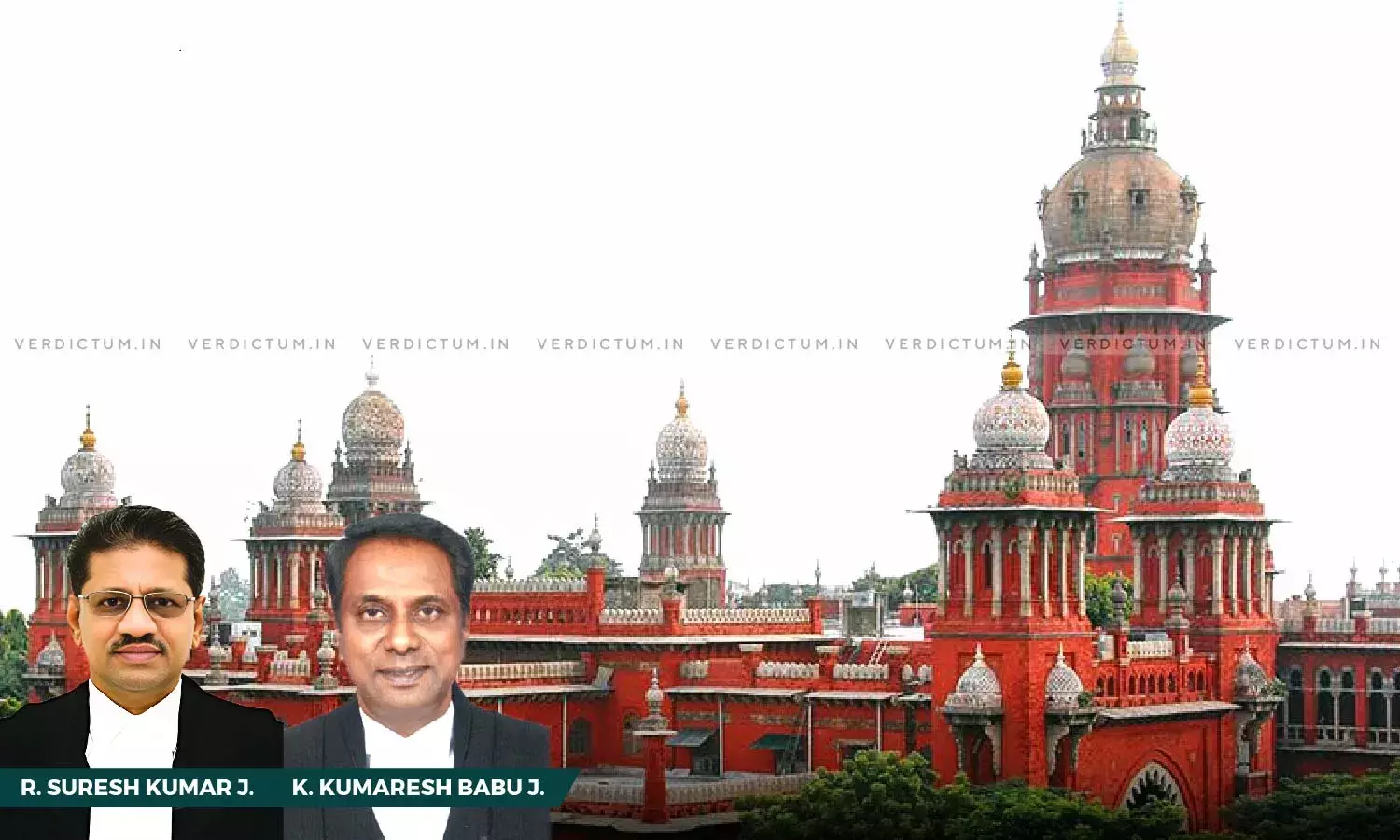Disciplinary Authority Is Bound By Findings Of Fact Given By Internal Complaints Committee: Madras HC In POSH Case
The Madras High Court held that the disciplinary authority is bound by the findings of fact given by Internal Complaints Committee.
The Court held thus in a writ appeal preferred against the order of the Single Judge by which the fact-finding report and the consequential second show cause notice were upheld.
A Division Bench of Justice R. Suresh Kumar and Justice K. Kumaresh Babu observed, “From the conjoint reading of the judgment of the Hon'ble Apex Court extracted supra, we are of the view that the disciplinary authority is bound by the findings of fact given by the internal complaints committee viz., the second respondent herein. The second respondent is a fact finding enquiry authority and the report of the committee is held to be a report of an enquiry authority based upon which a disciplinary action by the first respondent can be initiated. If the arguments of the learned counsel appearing for the appellant are to be accepted in that regard, it would only create a situation where the affected victims of sexual harassment would be again put to an embarrassment to once again to substantiate their case before an another authority or otherwise, the appellant would again contend that there was no evidence available to the departmental enquiring authority to give a report.”
The Bench said that an employee should not be contemned in violation of principles of natural justice and the well settled principles of audi alteram partem.
Advocate V. Vijaya Shankar appeared for the appellant while Senior Advocate Karthik appeared for the respondents.
Brief Facts -
The appellant was working as an Assistant Professor in Zoology Department in the respondent college and was originally appointed in 2011 under the Management cadre and he was appointed under the Government aided scheme. He submitted that the college had arranged for a study tour of the students of Zoology Department during January 2019. About 42 students participated and they were accompanied by seven teaching faculty including the appellant and one non-teaching faculty.
After nearly 2 months, the appellant was surprised that the respondent initiated proceedings against him and one another Professor under the provision of The Sexual Harassment of Women at Workplace (Prevention, Prohibition and Redressal) Act 2013 i.e., POSH Act. He denied various allegations against him and since the complaints and the statements were only furnished to him, pursuant to his request, thereby he sought for a re-enquiry with permission to mark additional documents and to reopen the examination of witnesses on his side. The same was denied by the respondent and a second show cause notice was issued to him to dismiss him from service. Being aggrieved, he approached the High Court.
The High Court in view of the facts and circumstances of the case noted, “… the Government of India had also promulgated The Sexual Harassment of Woman at Work Place (Prevention, Prohibition and Redressal) Act, 2013, and also the Rules. Section 13 envisages that the Internal Committee on coming to the conclusion that the allegation against the delinquent has been proved, it shall recommend to the employer to take action for sexual harassment, as a misconduct in accordance with the provisions of the service Rules applicable to the respondents and when no such service Rules have been made in such manner as may be prescribed. Section 19 mandates that it is the duty of an employer to treat sexual harassment as a misconduct under the service Rules and initiate action for such misconduct.”
The Court added that Rule 9 of the Rules envisages that except in cases, where service rules exits, if the complaints committee arrives at a conclusion that the allegations have been proved, then it shall recommend to the employer to take any action including written apology etc., including termination.
“It is an admitted case that the employment of the appellant with the first respondent is governed by an agreement as envisaged under Sub-Rule 2(I) of Rule 11 of the Tamil Nadu Private Colleges (Regulation) Rules 1976. Clause 7 of the agreement deals with the manner in which the action should be initiated for inflicting a punishment of dismissal, removal, reduce in rank or termination. It also envisages a personal hearing”, it said.
Accordingly, the High Court dismissed the writ appeal.
Cause Title- Samuel Tennyson v. The Principal & Secretary, Madras Christian College & Ors.
Appearance:
Appellant: Advocate V. Vijaya Shankar
Respondents: Senior Advocate Karthik, Advocates P. John Zachariah, Sai Prasad, and Adithya Varadarajan.




